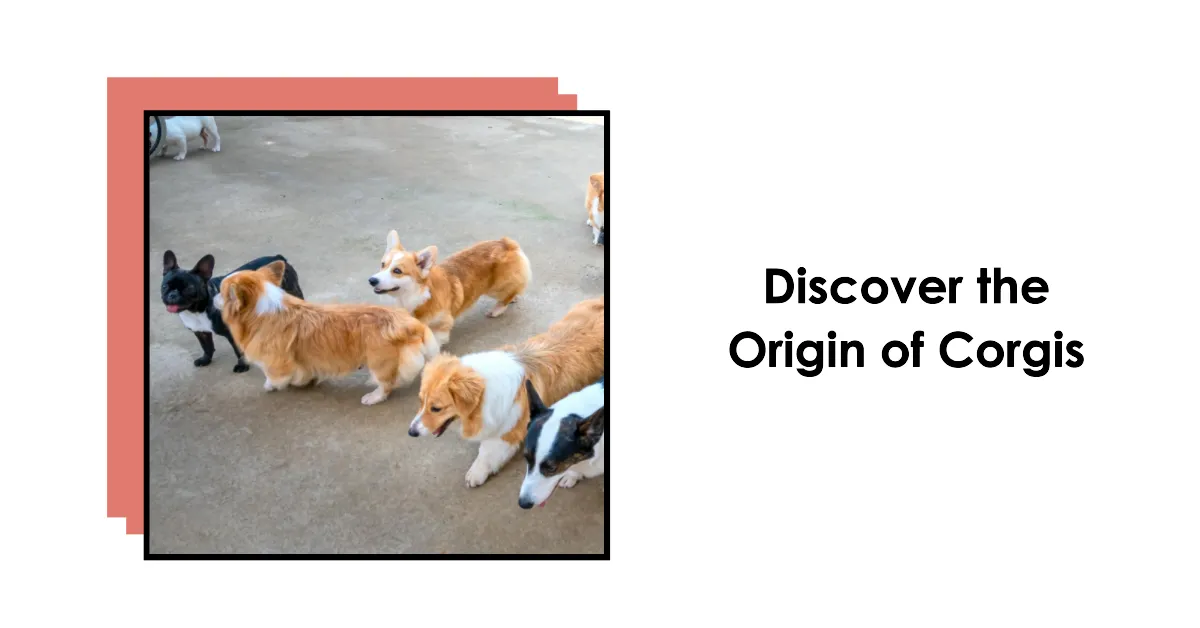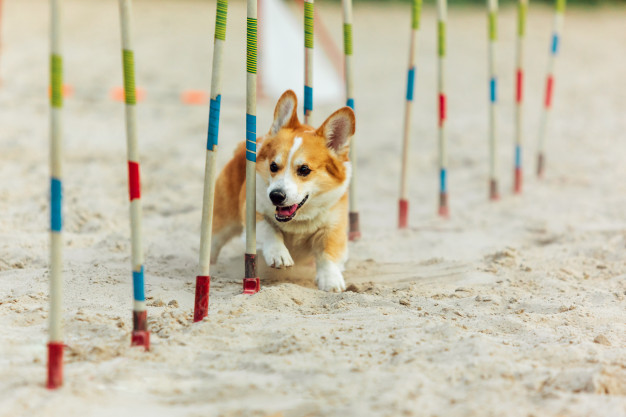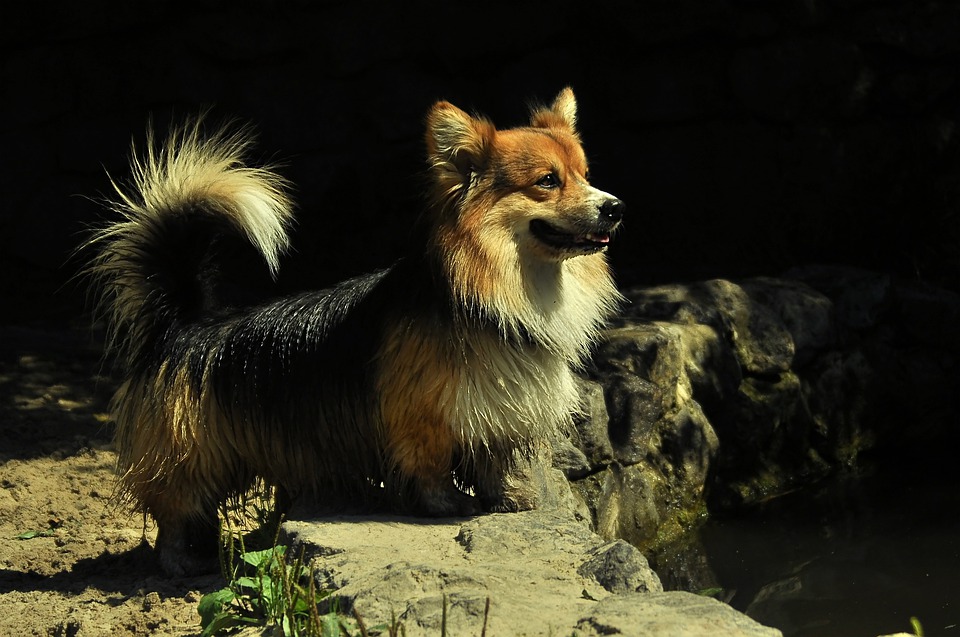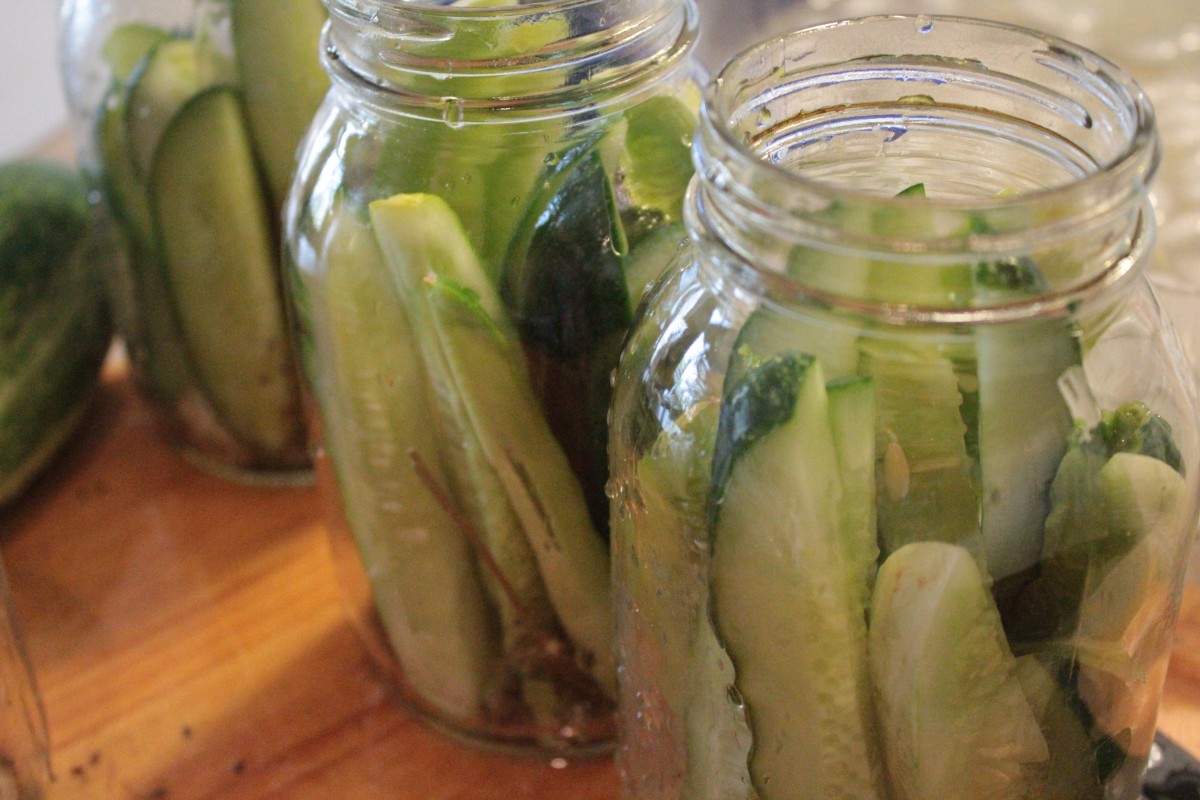How to Ensure a Fun and Fit Lifestyle for Your Corgi

Did you know that 56% of Corgis in the United States are overweight? If you want to ensure a fun and fit lifestyle for your beloved Corgi, it's crucial to take proactive steps to keep them healthy and active.
By following a few simple guidelines, you can create an environment that promotes their physical and mental well-being. From establishing a daily exercise routine to providing engaging mental stimulation, there are plenty of ways to keep your furry friend happy and in shape.
Additionally, feeding them a balanced and nutritious diet, offering interactive toys and games, and organizing socialization opportunities with other dogs can also contribute to their overall wellness.
Regular health check-ups and positive reinforcement training are essential for their safety and long-term happiness. With these strategies in place, you can help your Corgi lead a vibrant and fulfilling life.
Daily Exercise Routine
How often should you take your Corgi for exercise?
Daily exercise is crucial for the overall health and well-being of your furry friend. Corgis are an active breed that requires regular outdoor playtime and structured workouts to keep them physically and mentally stimulated. Engaging in these activities not only helps them burn off excess energy but also prevents obesity and behavioral issues.
It's recommended to provide your Corgi with at least 30 minutes to an hour of exercise each day. This can include walks, runs, or play sessions in a securely fenced yard. Remember to vary the activities to keep them interested and motivated.
Always prioritize safety by ensuring a controlled and secure environment for your Corgi's exercise routine.
Engaging Mental Stimulation
Looking to keep your Corgi's mind sharp and engaged? Puzzle toys are a fantastic way to challenge their problem-solving skills and keep them entertained for hours.
Training games not only provide mental stimulation but also strengthen your bond with your furry friend.
And don't forget about enrichment activities like hide-and-seek or scent games that tap into their natural instincts.
Puzzle Toys for Corgis
To engage your Corgi's mental stimulation, provide them with puzzle toys. Puzzle toys offer numerous benefits for your furry friend. Not only do they keep your Corgi entertained and occupied, but they also provide mental exercise, preventing boredom and destructive behavior. These toys challenge their problem-solving skills, stimulate their cognitive abilities, and promote healthy brain development.
Puzzle toys come in various shapes, sizes, and difficulty levels, allowing you to find the perfect fit for your Corgi's abilities. Look for toys that require your Corgi to manipulate parts, such as sliding, spinning, or lifting, to access treats or rewards. Some popular puzzle toy recommendations for Corgis include the Kong Classic, Nina Ottosson Dog Brick, and Outward Hound Hide-A-Squirrel.
Remember to supervise your Corgi when playing with puzzle toys to ensure their safety and enjoyment.
Training Games for Corgis
To engage your Corgi's mental stimulation further, incorporate training games into their routine. These games not only provide mental exercise but also strengthen the bond between you and your furry friend.
Obedience training techniques can be turned into fun games. For example, you can play 'Simon Says' where you give commands like sit, stay, or lie down, and your Corgi must follow them. This game not only reinforces their training but also challenges their ability to listen and respond quickly.
Agility training exercises are another great way to engage their mind. Set up an obstacle course in your backyard or use a local dog park and guide your Corgi through jumps, tunnels, and weave poles. This won't only test their physical abilities but also require them to think and problem solve.
Enrichment Activities for Corgis
For engaging mental stimulation, incorporate enrichment activities into your Corgi's routine. These activities not only keep your furry friend entertained, but also provide important mental exercise.
One popular option is setting up obstacle courses in your backyard. Use items such as cones, tunnels, and jumps to create a challenging course for your Corgi to navigate. This won't only test their physical agility, but also engage their problem-solving skills.
Another fun activity is playing hide and seek games. Hide treats or toys throughout your house and encourage your Corgi to find them. This will stimulate their sense of smell and keep their mind sharp.
Remember to always supervise your Corgi during these activities to ensure their safety.
With these enrichment activities, your Corgi will stay mentally stimulated and happy.
Balanced and Nutritious Diet
Are you wondering how to ensure that your Corgi stays healthy and happy through its diet?
Well, the key lies in mealtime portion control and providing the essential nutrient requirements.
Mealtime Portion Control
Ensuring a balanced and nutritious diet for your Corgi involves implementing proper mealtime portion control. By practicing portion control, you can help your furry friend maintain a healthy weight and prevent overeating.
Interactive feeding is a great way to make mealtime more engaging and prevent your Corgi from eating too quickly. You can use puzzle toys or slow-feed bowls to encourage them to eat at a slower pace, which can aid in digestion and prevent bloating.
It's important to consult with your veterinarian to determine the appropriate portion size for your Corgi based on their age, weight, and activity level.
Essential Nutrient Requirements
To provide your Corgi with a balanced and nutritious diet, it's important to understand their essential nutrient requirements. A well-balanced diet is crucial for your furry friend's overall health and well-being. Nutrient deficiencies can lead to various health issues, such as weak bones, poor immune function, and dull coat.
To ensure your Corgi receives all the necessary nutrients, focus on providing a diet that includes high-quality protein, healthy fats, carbohydrates, vitamins, and minerals. Incorporate lean meats, such as chicken or turkey, as a source of protein. Include fruits and vegetables for essential vitamins and minerals.
Additionally, consider adding dietary supplements to your Corgi's diet, but always consult with your veterinarian first, as they can guide you on the appropriate dosage and type of supplement for your Corgi's specific needs.
Interactive Toys and Games
To keep your Corgi engaged and active, incorporate interactive toys and games into their daily routine. Interactive toys provide numerous benefits for your furry friend. They not only keep them mentally stimulated but also help prevent boredom and destructive behavior.
When choosing the right interactive games for your Corgi, consider their size and activity level. Here are three options to consider:
- Puzzle toys: These toys challenge your Corgi's problem-solving skills and keep them entertained for hours. They usually involve hiding treats or toys inside compartments that your Corgi has to figure out how to access.
- Fetch toys: Corgis are known for their love of chasing and retrieving. Invest in a sturdy fetch toy that's easy for them to pick up and won't pose a choking hazard. This way, you can play fetch with your Corgi both indoors and outdoors.
- Treat-dispensing toys: These toys allow you to reward your Corgi with treats while keeping them mentally engaged. They usually have compartments where you can hide treats, and your Corgi has to figure out how to get them out.
Incorporating interactive toys and games into your Corgi's routine won't only keep them physically active but also mentally stimulated. By providing them with these engaging activities, you're ensuring a fun and fit lifestyle for your beloved Corgi.
Socialization and Playdates
Schedule regular playdates to ensure that your Corgi has the opportunity to socialize and interact with other dogs. Socialization is crucial for their mental and emotional well-being. It helps them develop good behavior, build confidence, and learn how to communicate effectively with other dogs. Consider taking your Corgi to the dog park, where they can meet and play with other furry friends in a safe and controlled environment. These visits will provide them with valuable social experiences and help prevent behavioral issues in the future.
Additionally, introducing new toys during playdates can add an extra element of fun and stimulation. Not only will your Corgi get to interact with other dogs, but they'll also have the chance to explore and play with different toys. This will keep them mentally engaged and prevent boredom. Make sure to choose toys that are safe, durable, and appropriate for your Corgi's size and age.
Regular Health Check-ups
It is important to schedule regular health check-ups for your Corgi to ensure their overall well-being. Just like humans, dogs need regular check-ups to catch any potential health issues early on. Here are three reasons why regular health check-ups are essential for your furry friend:
- Early detection of health problems: Regular check-ups allow the veterinarian to monitor your Corgi's health and catch any potential problems before they become serious. This can help prevent expensive treatments down the line and ensure your Corgi stays healthy and happy.
- Preventive care: During check-ups, the veterinarian will assess your Corgi's overall health, including their weight, dental hygiene, and vaccinations. They can provide preventive care measures, such as recommending a suitable diet plan and dental cleanings, to keep your Corgi in optimal condition.
- Peace of mind with pet insurance: Regular check-ups can help you stay on top of your Corgi's health, making it easier to file insurance claims if necessary. Having pet insurance ensures that you can provide the best possible care for your Corgi without worrying about financial burdens.
Positive Reinforcement Training
Scheduling regular health check-ups for your Corgi ensures their overall well-being. Positive reinforcement training is another crucial aspect of their fun and fit lifestyle.
Positive reinforcement techniques are a safe and effective way to train your Corgi. They promote good behavior and strengthen the bond between you and your furry friend.
One popular positive reinforcement technique is clicker training. This involves using a clicker to mark desired behaviors, followed by a reward such as treats or praise. The clicker serves as a signal that the behavior was correct, making it easier for your Corgi to understand what you want from them.
Clicker training isn't only effective but also fun for both you and your Corgi. It creates a positive learning experience that will keep them engaged and motivated.











